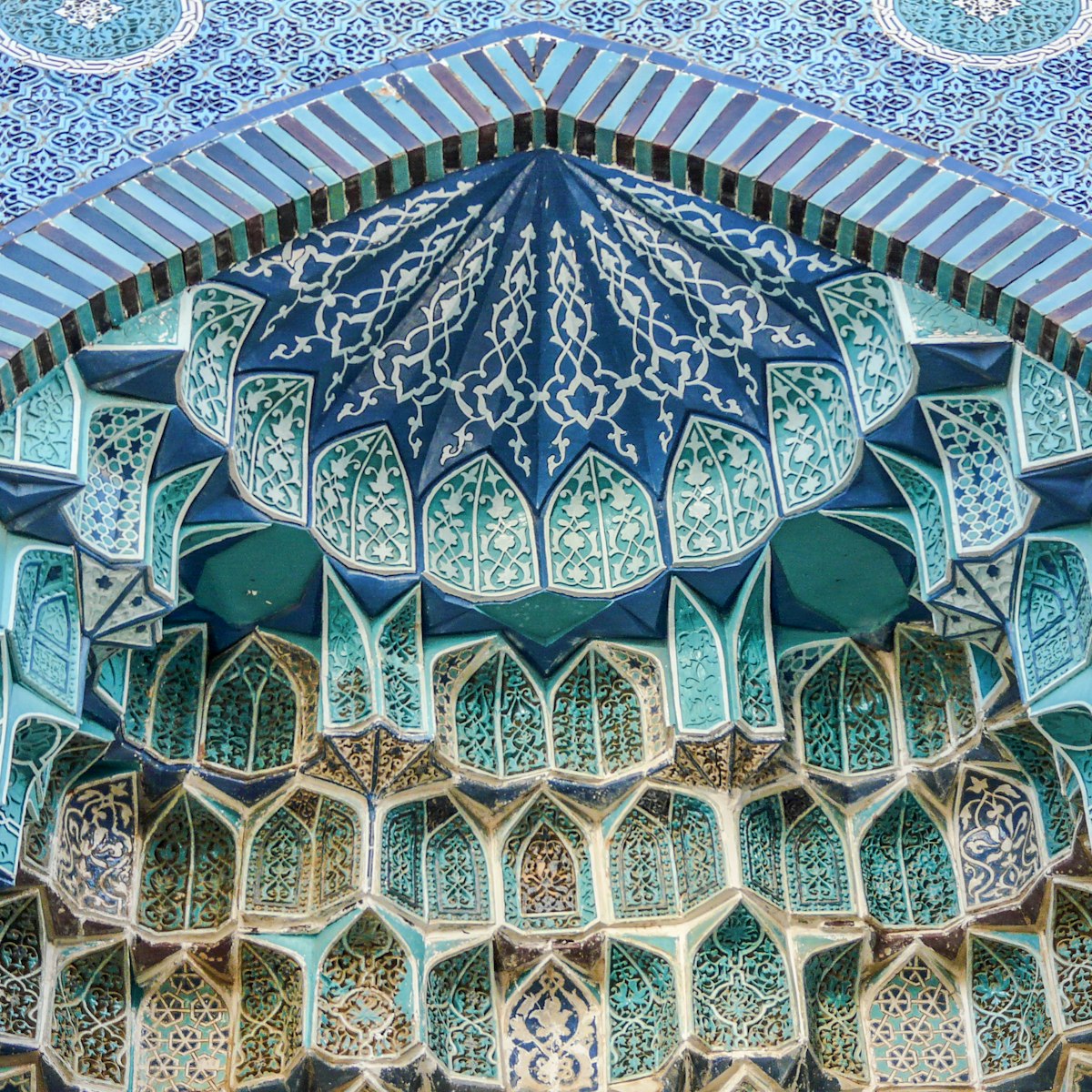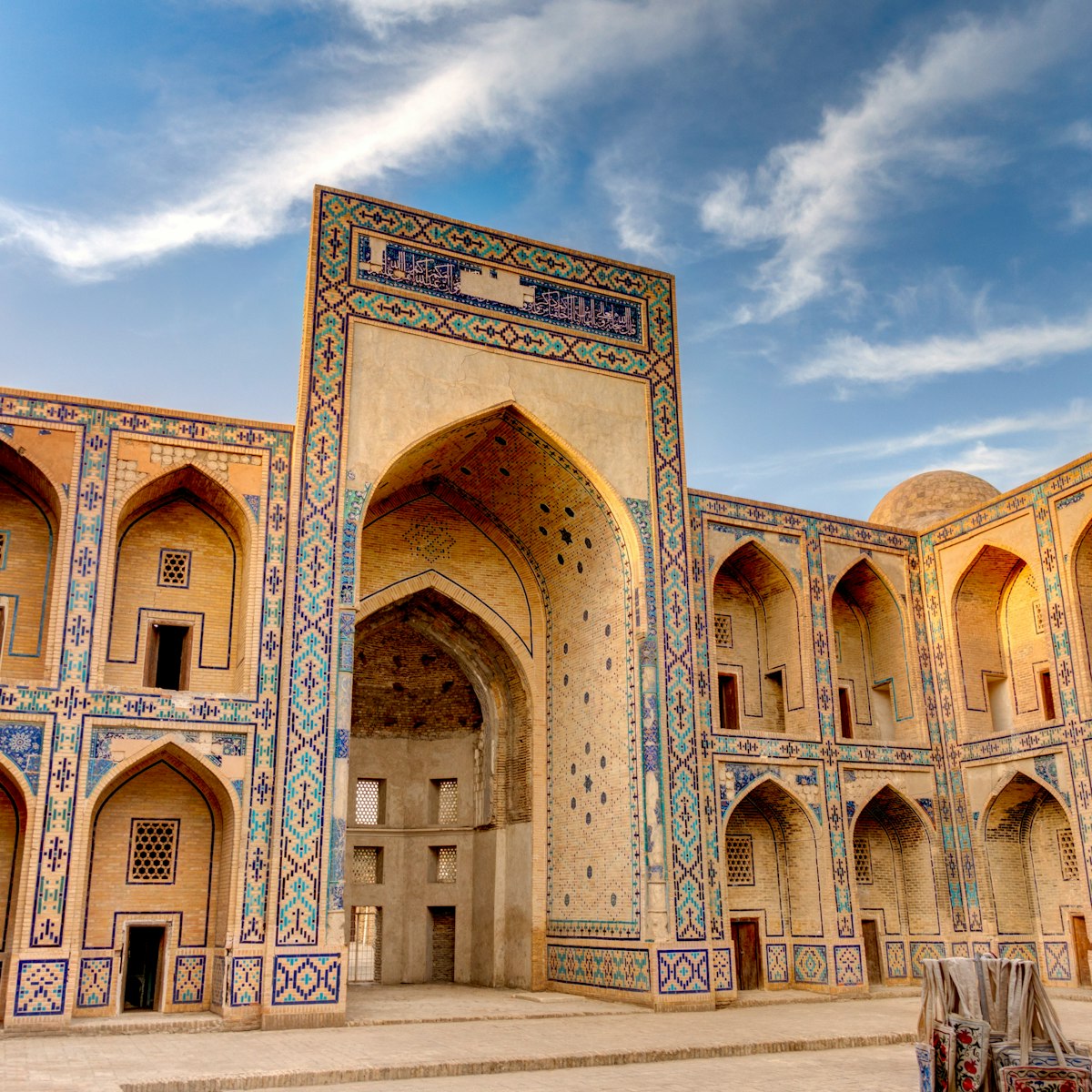The Afrosiab Museum was built around one of Samarkand’s more important archaeological finds, a chipped 7th-century fresco of the Sogdian King Varkhuman (r 650–670) receiving ranks of foreign dignitaries (including Chinese envoys carrying silk), while sitting astride elephants, camels and horses. You’ll see reproductions of this iconic fresco throughout the country. It was only discovered in 1965 during the construction of Toshkent yo'li.
The left-hand wall depicts red- and white-faced dignitaries leading geese and horses on a sacrificial procession, while the right wall shows the Chinese Tang emperor Gaozong hunting panthers.
The 2nd floor of the museum deals with the 11 distinct layers of the archaeological site; at the time of research it was closed due to water damage. It's worth catching the short film explaining the murals and their French-sponsored renovation.






